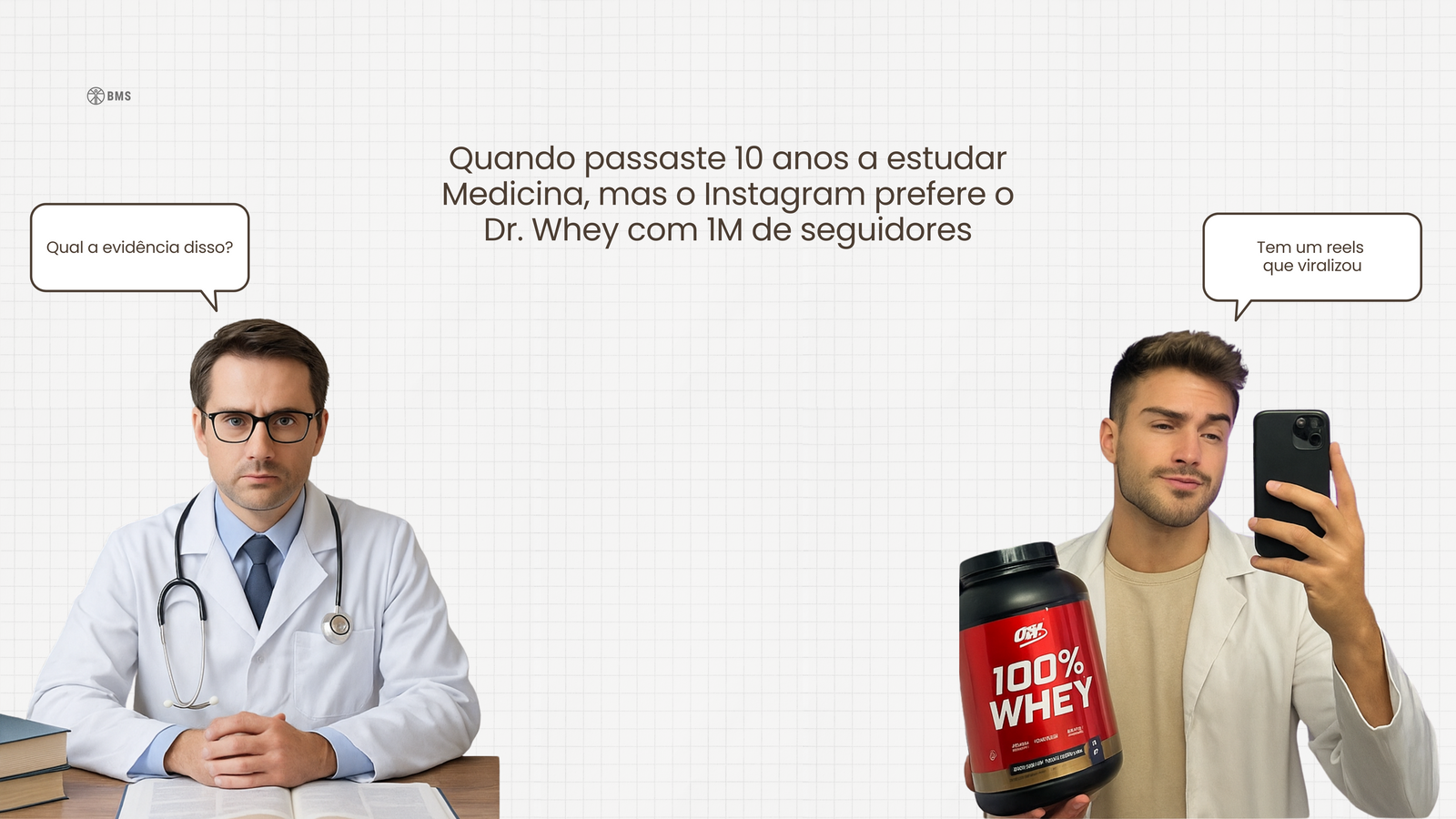These days, trusting a healthcare professional is no easy task. But trusting a healthcare professional on social media ? That's practically an extreme sport.
We live in a time when posts become theses, comments are worth more than resumes, and with the right feed, anyone with glasses and a stethoscope can look like a biomedical demigod. And how do you distinguish a good professional from an influencer with a diploma (or even less)? Igor Eckert shared 5 warning signs. And we, here, decided to turn them into a column with lots of love, sarcasm, and a touch of healthy indignation.
1. Disagreeing has become a personal offense
You ask a serious question, raise a well-founded doubt, and you're immediately labeled a hater . It doesn't matter if you used 12 references, 3 meta-analyses, and two color graphs—if you questioned it, you're against it. And anyone who's against it, of course, must have ulterior motives. There's nothing like dodging the argument using the old "the other person has a conflict of interest" trick, even if the other person is just... competent.
2. The creative use of scientific evidence
Here comes the famous screenshot of the article, underlined with a fluorescent highlighter and captioned "It's proven!" But no one mentions that the study involved five rats, at an obscure university, and funded by a detox juice brand. But hey, if it has an English title and a cute graph, it seems convincing.
And what if the person doing this has a PhD and an organized feed? Wow. A real rhetorical bombshell. Especially if they're part of the "gluten causes autism and lactose destroys synapses" camp.
3. The biochemical charm
This is a classic. Nothing like dropping names of molecules, metabolic pathways, receptors, and genes to hypnotize an audience. It all has the air of a TED Talk: "Serotonin inhibits mitochondrial reuptake of the HPA axis through parabolic norepinephrine feedback." Didn't get it? No one did. But it sounded brilliant.
And that's the trick: when you're not right, you're impressed.
4. The “success story” as scientific proof
Ah, clinical miracles. The patient who cured her anxiety with avocado leaf tea. The athlete who regenerated his meniscus with positive thinking and ionized clay. If there are "success stories," who needs science?
"Every body is unique," they say. And it's true. But that doesn't invalidate the importance of testing hypotheses on more than just three people and a cat with osteopathy.
5. Drama sells
Emotional promises, videos with epic music, glowing eyes, and the word "cure" written in all caps. All wrapped up in technical rhetoric with no practical value, but just the right tone. And if it sounds too good to be true... it probably is.
Conclusion: common sense is still the trend
The world of social media is full of well-intentioned people, but it's also full of academically veneered hope-mongers. The line between a serious professional and a sensationalist is thin—but it exists. And it almost always involves humility, a willingness to engage in dialogue, and honesty about what one knows (and what one doesn't).
When in doubt, distrust those who are always right, never wrong, and respond to criticism with phrases like "do your own research." Because, deep down, good science is science with doubts. And with room for conversation, not just likes.

